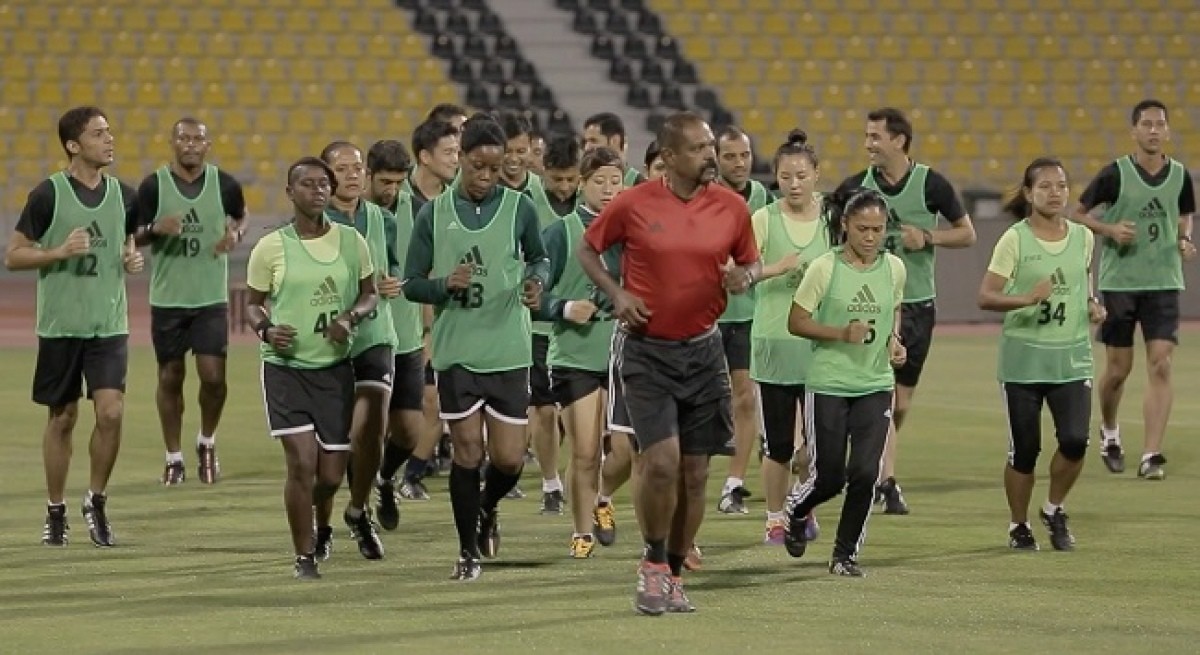.jpg)
_1-itok=GFMKQ6A9.jpg)
Six-and-a-half years before Qatar makes history by staging the first FIFA World Cup™ in the Middle East, it hosted a FIFA referees seminar which included men's and women's officials on a common platform for the first time ever.
Referees from the Asian Football Confederation, Oceania Football Confederation and the Confederation of African Football participated in the Doha-based seminar, which is part of FIFA's preparations for the upcoming men's and women's World Cup editions in Russia and France, in 2018 and 2019 respectively.
The seminar is used by FIFA as a training mechanism for referees who are likely to be part of the two elite tournaments and involved physical and endurance tests, lectures, presentations and audio-visual analysis of real-time decision making on the pitch.
"The quality of football in the women's World Cup is growing rapidly and the tournament is emerging as a major spectator sport," said FIFA's Head of Refereeing Massimo Busacca, in an interview with www.sc.qa.
"It is also opening up new broadcast markets. Referees officiating in the tournament, therefore, will need a similar level of training like their male counterparts."
He continued: "The philosophy of refereeing in both men's and women's competitions must be similar. Men and women referees must work together and exchange ideas and both should learn from each other."
"This is the reason why FIFA is investing millions into the development side of football of which referees training is a part."
Busacca also suggested that reducing the number of errors in elite tournaments is another key objective of the seminar, but insisted the process can never be perfect. "Mistakes will happen because referees are human," he added.
"If a star forward earning millions of dollars a month can miss an open goal the referees can also make bad decisions. The referees seminar will give valuable inputs which will help officials minimise errors and arrive at consistency of decision making.
"Platforms such as this can also be useful for sharing of experiences which will help referees to deal with the pressure of officiating on the big stage."
Qatar Football Association's Abdulrahman Al Jassim was among the 25 male participants of the seminar, which also included 23 female officials.

